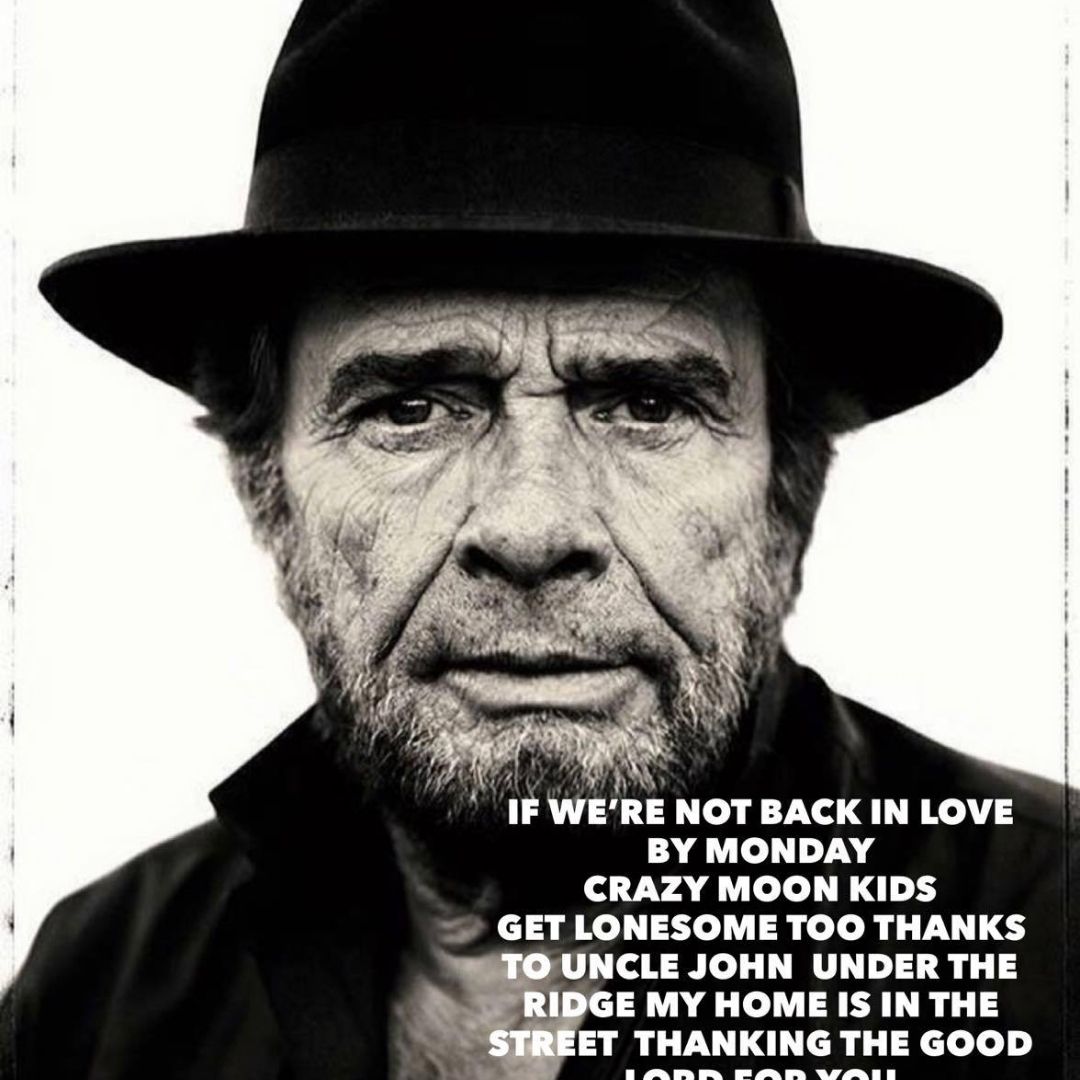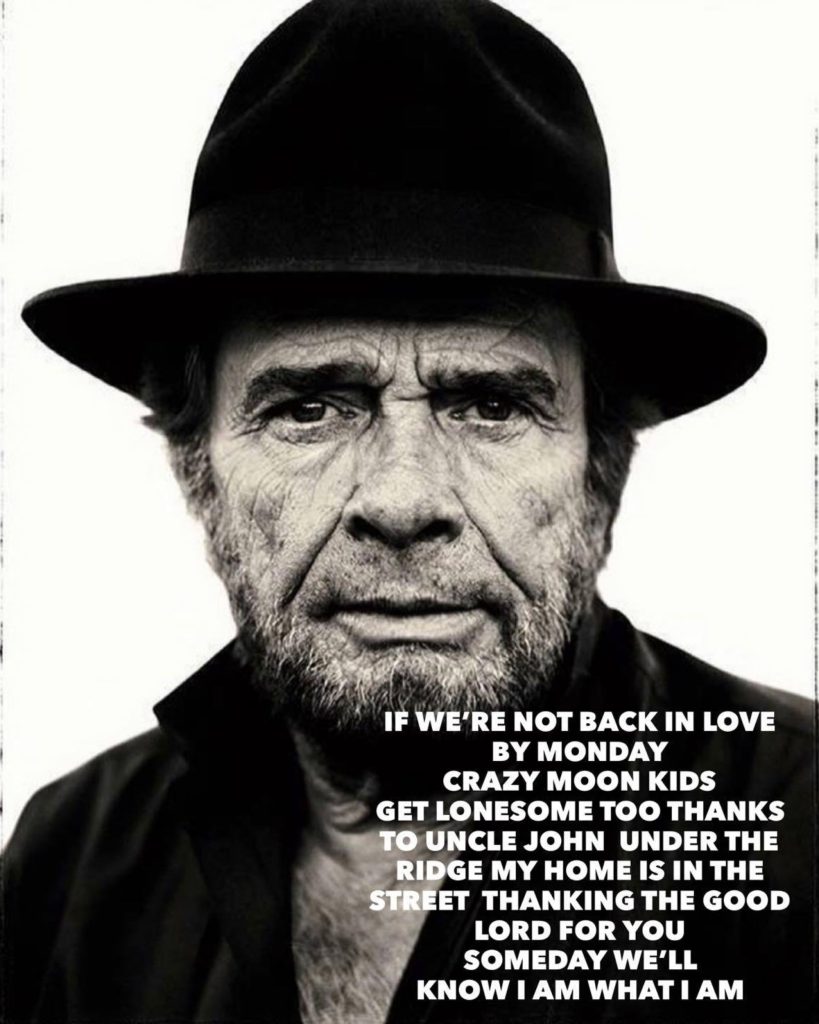“Scroll down to the end of the article to listen to music.”
Introduction
Growing up in a small town, I remember my grandfather spinning old vinyl records on lazy Sunday afternoons, the twang of country music filling the air. One song that always stopped me in my tracks was Merle Haggard’s Are the Good Times Really Over (I Wish a Buck Was Still Silver). Its raw honesty and nostalgic yearning for a simpler America struck a chord, even as a kid who hadn’t lived through the times Haggard sang about. That memory pulls me back to the song today, a timeless reflection on change and loss that feels just as poignant in 2025.
About The Composition
- Title: Are the Good Times Really Over (I Wish a Buck Was Still Silver)
- Composer: Merle Haggard
- Premiere Date: Released October 1, 1981; single release in May 1982
- Album/Opus/Collection: Big City (1981)
- Genre: Country, Bakersfield Sound
Background
Written and recorded by Merle Haggard with his backing band, The Strangers, Are the Good Times Really Over was the third single from his 1981 album Big City. The song emerged during a period of economic and social upheaval in the United States, with inflation eroding the dollar’s value and cultural shifts challenging traditional values. Haggard, a former convict turned country music icon, drew from his hardscrabble upbringing in a converted boxcar in Bakersfield, California, during World War II. The song reflects his concern over what he saw as irreversible moral and societal decline, lamenting the loss of an America where a dollar held real value, cars were built to last, and cultural icons like Elvis and The Beatles hadn’t yet reshaped the landscape.
The song’s inspiration was deeply personal for Haggard, rooted in his conservative worldview and skepticism of modern progress. It references historical events like the Vietnam War and Richard Nixon’s presidency, as well as cultural touchstones like Coca-Cola and the rise of microwave ovens. Released as a single in May 1982, it climbed to #2 on the Billboard Hot Country Singles chart and hit #1 on Canada’s RPM Country Tracks chart, resonating with audiences who shared Haggard’s nostalgia. Within his extensive repertoire, which includes over 40 #1 country hits, this song stands out for its social commentary and emotional weight, cementing Haggard’s reputation as the “Poet of the Common Man.”
Musical Style
Are the Good Times Really Over is a quintessential example of the Bakersfield Sound, characterized by its raw, unpolished edge, twangy Fender Telecaster guitars, and a blend of traditional country steel guitar with minimalist vocal harmonies. The song’s structure is straightforward, with two verses, a chorus, and a refrain, allowing Haggard’s weathered baritone to carry the emotional weight. The instrumentation—featuring pedal steel, fiddle, and a steady rhythm section—creates a melancholic yet defiant tone, mirroring the song’s themes of loss and resistance to change.
Haggard’s vocal delivery is understated but powerful, with a conversational quality that makes the lyrics feel like a heartfelt confession. The song’s tempo is moderate, giving space for the listener to absorb the weight of each line. The simplicity of the arrangement, devoid of the slick production common in 1980s Nashville, enhances its authenticity, grounding it in the working-class ethos of the Bakersfield Sound. This rawness amplifies the song’s impact, making it both a lament and a call to action.
Lyrics
The lyrics of Are the Good Times Really Over are a poetic critique of modern America, woven with vivid imagery and cultural references. Haggard begins with a wish for a time “when a buck was still silver” and “the country was strong,” evoking an era before inflation and cultural upheaval. He name-checks Elvis, The Beatles, the Vietnam War, and Nixon’s televised lies, painting a timeline of decline. Lines like “I wish a Ford and a Chevy would still last ten years like they should” and “I wish coke was still cola, and a joint was a bad place to be” blend nostalgia with sharp social commentary, critiquing consumerism, drug culture, and political dishonesty.
The refrain—“Is the best of the free life behind us now? And are the good times really over for good?”—is both a question and a challenge, urging listeners to reflect on their values. The chorus, with its vivid metaphor of “rolling downhill like a snowball headed for hell,” captures a sense of unstoppable decline, yet Haggard’s delivery carries a flicker of hope, especially in later verses where he calls to “stand up for the flag and let’s all ring the Liberty Bell.” The lyrics’ themes of lost innocence and eroding traditions are tightly interwoven with the music’s mournful tone, creating a unified expression of longing and defiance.
Performance History
Since its release, Are the Good Times Really Over has been a staple of Haggard’s live performances, often met with enthusiastic responses from audiences who connected with its message. The song’s chart success in 1982 established it as one of Haggard’s signature works, alongside classics like Okie from Muskogee. It has been featured on compilations like 16 Biggest Hits (1998), though some versions on that album are re-recordings from 1994.
The song has also been covered by artists like The Steel Woods, Wynonna, Jason Aldean, and Randy Travis, each bringing their own spin to Haggard’s lament. These covers, spanning decades, highlight the song’s enduring appeal across generations of country music fans. Its live performances, whether by Haggard or others, often emphasize its emotional rawness, with audiences singing along to the refrain as a shared expression of nostalgia.
Cultural Impact
Beyond country music, Are the Good Times Really Over has resonated as a cultural artifact, capturing a conservative yearning for a perceived golden age. Its references to American icons like Ford, Chevy, and Coca-Cola, alongside critiques of political and social changes, have made it a touchstone for discussions about national identity and values. The song’s title and refrain have been quoted in political discourse, particularly among those skeptical of modernization and globalization.
Its influence extends to other media, with appearances on platforms like YouTube, Spotify, and Pandora, where it continues to garner streams and fan engagement. Posts on X in 2025 show listeners sharing the song as a reflection of their own frustrations with contemporary society, underscoring its relevance. The song’s critique of “microwave ovens” and changing gender roles has sparked debate, with some praising its honesty and others critiquing its dated views, particularly on women’s roles. Regardless, its ability to provoke thought and emotion ensures its place in cultural conversations.
Legacy
Are the Good Times Really Over remains a powerful testament to Merle Haggard’s ability to articulate the struggles and sentiments of everyday Americans. Its enduring relevance lies in its universal themes of change, loss, and the search for meaning in a rapidly evolving world. In 2025, as economic uncertainties and cultural shifts persist, the song’s questions feel as urgent as ever. It continues to touch audiences, from older fans who lived through the era Haggard describes to younger listeners discovering its raw honesty through covers or streaming platforms.
The song’s legacy is also tied to Haggard’s broader influence as a pioneer of the Bakersfield Sound, which challenged Nashville’s polished aesthetic and gave voice to the working class. Its inclusion in Haggard’s extensive discography, alongside hits like Mama Tried and Today I Started LOVE You Again, underscores its importance as a cultural and musical milestone.
Conclusion
Are the Good Times Really Over is more than a country song—it’s a heartfelt reflection on a changing world, delivered with the grit and soul only Merle Haggard could muster. Its blend of nostalgia, critique, and hope resonates deeply, inviting listeners to ponder what we’ve lost and what we might still reclaim. For me, it’s a reminder of those Sunday afternoons with my grandfather, when music felt like a bridge to the past. I encourage readers to explore this gem—start with Haggard’s original 1981 recording on Big City or check out The Steel Woods’ 2019 cover for a modern take. Let the song’s twang and truth wash over you, and see if it doesn’t stir something deep within.
Video
Lyrics
I wish a buck was still silver
And it was back when country was strong
Back before Elvis and before Viet Nam war came along
Before the Beatles and “Yesterday”
When a man could still work and still would
Is the best of the free life behind us now?
And are the good times really over for good?
Are we rollin’ down hill like a snowball headed for hell
With no kind of chance for the flag or the Liberty Bell
I wish a Ford and a Chevy would still last ten years
Like they should
Is the best of the free life behind us now?
And are the good times really over for good?
I wish coke was still cola
And a joint was a bad place to be
And it was back before Nixon lied to us
All on TV
Before microwave ovens
When a girl could still cook
And still would
Is the best of the free life behind us now?
And are the good times really over for good?
Are we rollin’ down hill like a snowball headed for hell
With no kind of chance for the flag or the Liberty Bell
I wish a Ford and a Che

